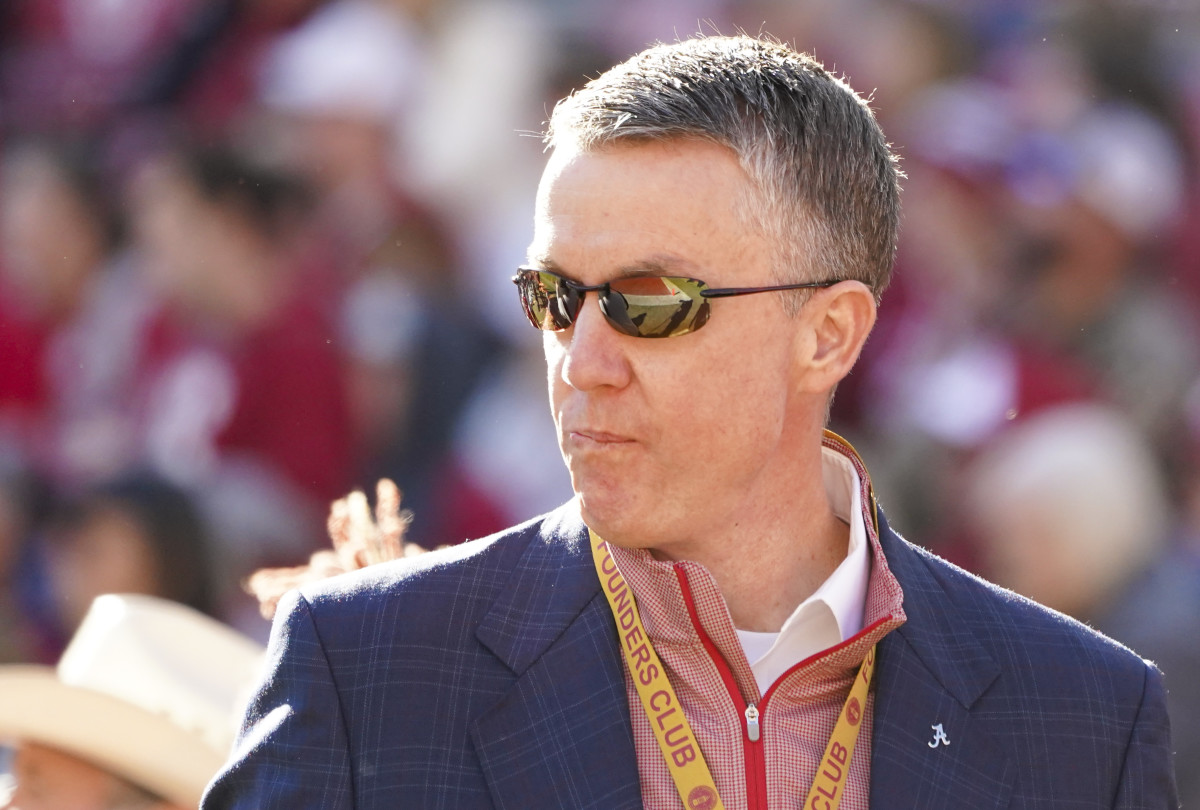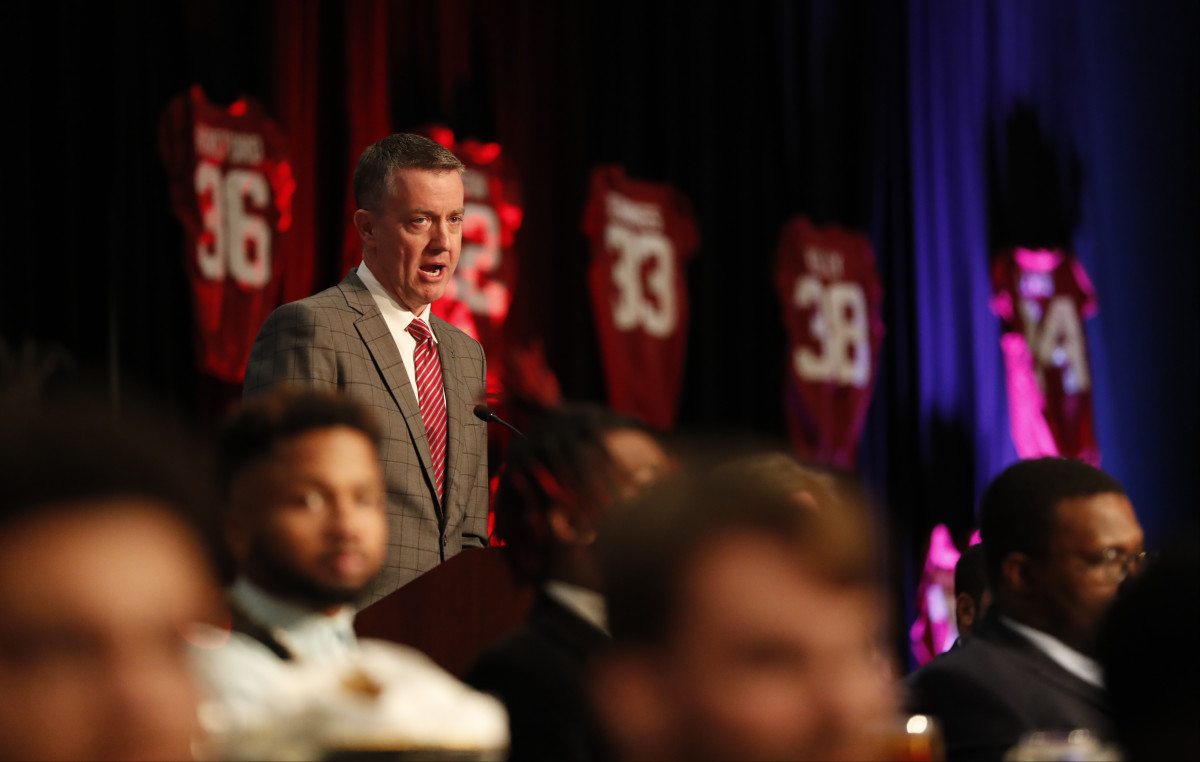Alabama AD Greg Byrne: "Coach Saban is very passionate about the game of college football"
DESTIN, Fla. — Wednesday afternoon at Day 2 of the SEC Spring Meetings, Alabama director of athletics Greg Byrne gave his thoughts of the ongoing feud between Crimson Tide head football coach Nick Saban and Texas A&M head coach Jimbo Fisher.
Back in May at an event promoting the 2022 World Games in Birmingham, Saban noted that he believed Fisher and the Aggies bought their entire recruiting class by utilizing NIL collectives. Fisher responded the following day in an impromptu press conference, condemning Saban and his comments.
“Some people think they’re God," Fisher said back on May 19. "Go dig into how God did his deal. You may find out about a guy a lot of things you don’t want to know.
"We build him up to be the czar of football. Go dig into his past or anybody that’s ever coached with him. You’ll find out anything you want to find out about what he does and how he does it.”
While Saban has responded to the accusations on multiple occasions — including in his meeting with the media on Tuesday — Fisher has remained silent since his May press conference.
On Wednesday, Byrne fielded questions from reporters in Destin, giving his thoughts on the matter.
“I think Coach Fisher, he was fired up,” Byrne said. “And I think he has worked with Coach Saban and obviously has benefitted from working with Coach Saban just like a lot of other coaches have. And so I know we feel very good about our compliance and what we do at Alabama and that’s been in the past and is going to continue in the future.”
Throughout his years as an athletic director at both Arizona and Alabama, Byrne has often been a man who is quite gifted at giving lengthy answers to questions while simultaneously not giving inquiring minds much of a peak behind the metaphorical curtain. On Wednesday, though, Byrne gave a very thoughtful answer regarding the Saban/Fisher spat by telling a story on his experience with Saban.
“Coach Saban is very passionate about the game of college football,” Byrne said. “I sat on the NCAA Football Oversight Committee for four or five years, and he and I would go talk about different issues that were going on about college football. And I remember one of the first things we ever talked about was kick returns and the safety on kick returns, and I just gave him a very quick line; I said ‘Hey, I need to get some feedback from you on this one.’ He called me the next day with detailed thoughts about five minutes long of kickoff returns and the safety and wellbeing of the student-athlete — the health of the game.
“So where he comes from — and there would be times with him I would say to him ‘What you’re saying here may not be the very best thing for Alabama,’ and he would often say ‘But this is right for the game of football, this is right for college sports.’ And I think he deserves a lot of credit for the things he says and does out there publicly: not only looking at what’s right for our program and our university, but he’s also looking at it from — and our student-athletes — but he’s also looking at it right for the game of football going forward.”
Since the dawn of Name, Image and Likeness just over a year ago in college athletics, the unrestricted nature of it has grown to be an oft-discussed topic among the media, coaches and the general public. While the coming about of NIL has been highly praised by most, the system — aka the NCAA — failed to institute many guardrails to prevent happenings such as direct payments from booster-led collectives from occurring.
Saban's comments concerning Texas A&M were not accusations that Fisher and the Aggies did anything illegal regarding NIL. Instead, Saban was simply pointing out how collectives and their use are not what NIL was originally intended for and, in a way, corrupt its purpose.
Byrne stated that the best course of action for all parties involved is to recognize the obstacles that NIL presents and find solutions beneficial for everyone.
“The world’s evolving,” Byrne said. “NIL is here. It’s a reality and there were no guardrails put in place, and so it’s created new challenges but those challenges aren’t going to go away right now. So what we have to do is make sure that we’re open-minded, that we are following whatever the guidelines are that are in place.”
Gallery: Alabama Director of Athletics Greg Byrne



